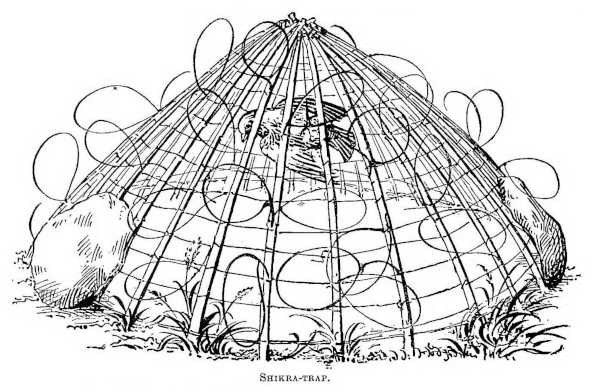FWP:
SETS == EXCLAMATION
BONDAGE: {1,5}
CURLS: {14,6}
On the complexities of the word sharm , with its meaning of 'honor/shame', see the previous verse, {83,1}.
The first line is a panicky exclamation, the second a cry for help, making the verse another of the countless examples of Ghalib's love of inshaa))iyah speech. As the commentators explain, the lover begs God to help him avoid the terrible allure of the beloved. Her curly tresses are like the meshes of a net or snare, and they lie in ambush, waiting to capture their prey.
This is a verse in which those who maintain that the beloved can always be taken as God find the going somewhat awkward. Clearly the lover is asking God for help with the beloved; it's hard to make sense of the verse in any other way. (It would really be an extraordinary casuistry that could make the lover ask God to help the lover escape His own curly tresses.) For more examples of such verses, see {20,3}.
Why should God help the lover? The word vaa-rastagii has religious as well as worldly dimensions (see the definition above). It can mean 'liberation' from many things, including the world-- and certainly including the snare of passion. The lover may be proposing a cleverly transactional deal here: 'Oh Lord, if you help me maintain my 'liberation' from passion, I can devote my full attention to You-- but if those curls get me, it's all over!'
As Bekhud Mohani points out, the lover's needing to call
on God for help is clear proof in itself of the irresistibleness of the beloved's
power. The lover's desperate cri de coeur sounds as if it's already
too late for any rescue to reach him.

Nazm:
That is, if I become a prisoner of the curls, then my claim of freedom and liberation will no longer remain. (83)
== Nazm page 83